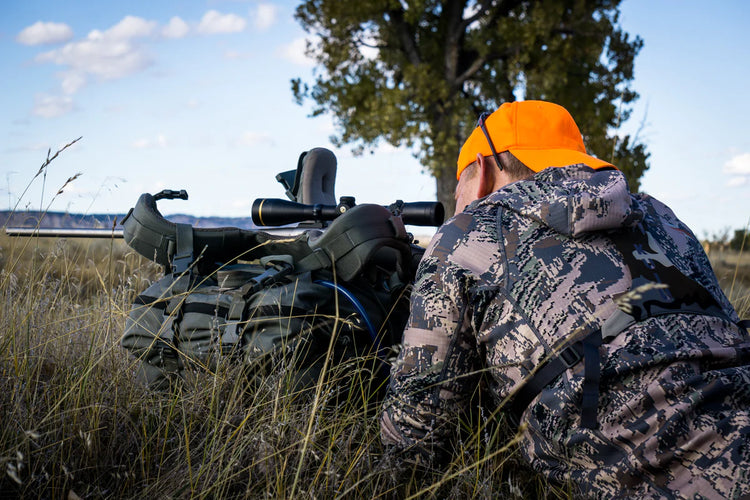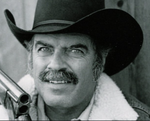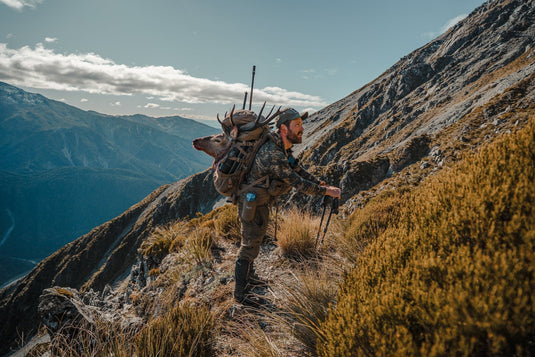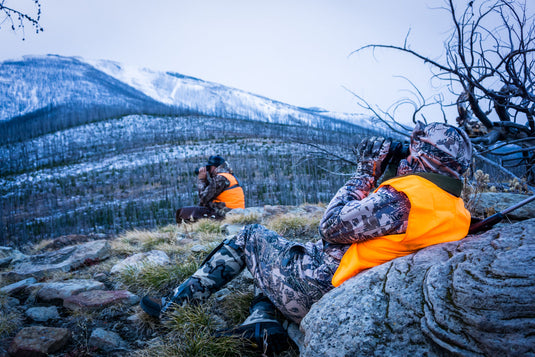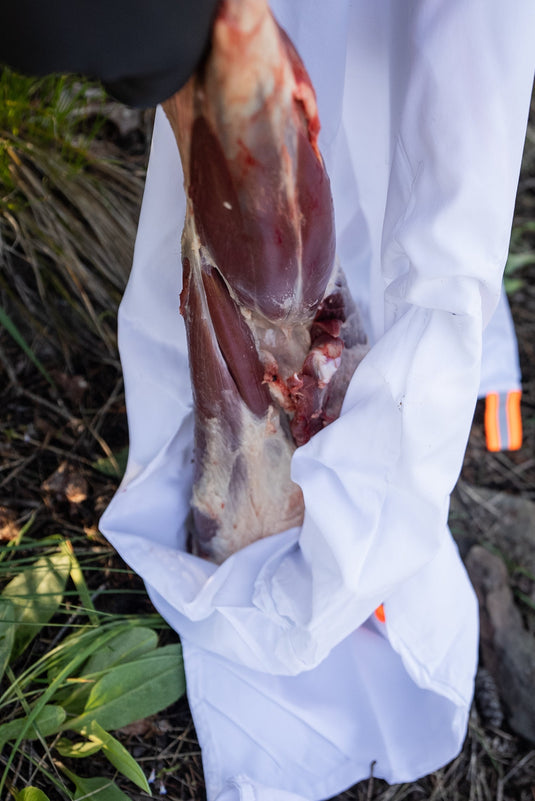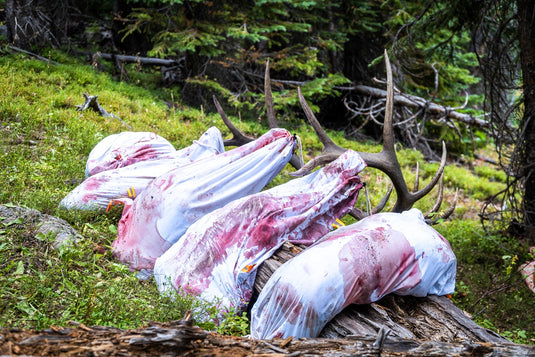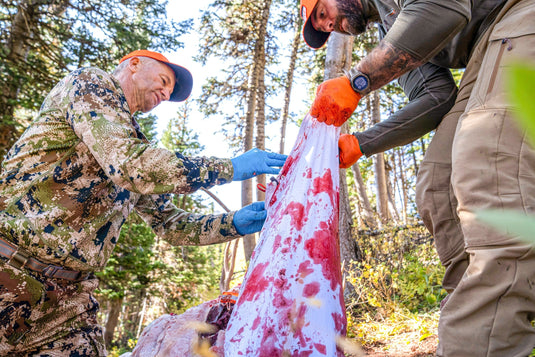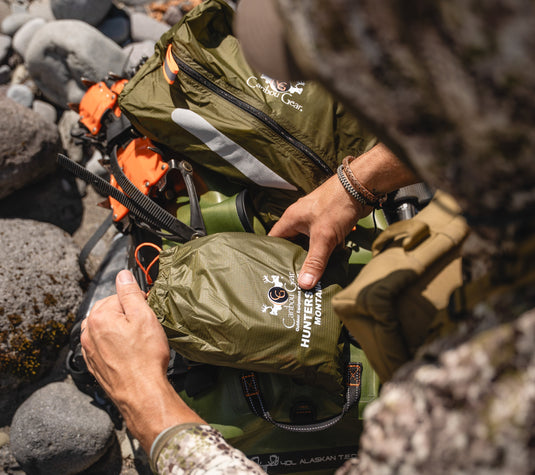The duck hunters did everything right. They scouted the marsh extensively before the season opened and determined flight patterns that most waterfowl would use. They found where the ducks spent the night and where they flew to feed in the morning. With that knowledge they carefully selected their spot for the portable blind that they’d carry in long before shooting light in the morning.
As it turned out, the ducks flew where the hunters figured they would, and shooting was great - at least for the first half hour. Birds settled in to their dekes with reckless abandon.
Suddenly the action stopped. Another party of hunters observed where the ducks were flying and set up where they could intercept and ambush the ducks. They didn’t need decoys and did this knowing they’d wreck the hunt for the guys who got there first.

Illegal or unethical? Definitely the latter. A warden won’t write a ticket to the interlopers. They didn’t break any laws but they surely were poor sportsmen.
Another example. You’re trout fishing in a stream and you’re enjoying some action in a pretty pool. It’s not very big and is best fished by one person. Along comes a dude who stomps right in and casts into the pool. His presence prevents you from fishing because he’s casting into the same places you were. Another good example of bad behavior and poor ethics.
Both scenarios above involve two parties. How about the hunter who displays poor ethics on his own? Consider the guy who fancies himself as a world class goose hunter and is known by his buddies as a “sky buster.” He shoots at almost every goose that flies, most of them well out of range. Most are misses but now and then he hits one in the wing and it glides away and falls a quarter mile away where retrieval is difficult if not impossible. He thinks his gun and ammo are far superior to anything else out there. Because of his indifferent attitude he doesn’t get invited to many hunts.
How about the bull elk that you spot across a wide draw. You don’t have a rangefinder but you know he’s out there a long ways, far longer than you’re used to shooting. You decide to try some Hail Mary shots, dropping the bullets in until you can dope out where they’re hitting. As a consequence, you hit the elk in the leg and break it. The crippled animal takes off with a devastating injury and even though you try to follow, the blood trail disappears and you’re responsible for the inevitable result — that bull is a goner. It might take awhile, but eventually he’ll succumb to that wound.

All these instances are perfectly legal, but let’s introduce an illegal element to each situation where the action is unlawful and the perpetrators are issued citations.
The guys who shamelessly ambushed the ducks that were heading to the other party’s dekes were checked by a warden and two of them had no duck stamps. Illegal.
The fisherman who encroached on the other angler caught a whitefish and tossed it up on the bank. He didn’t like them competing with trout. Whitefish are considered gamefish and he was guilty of breaking the “wanton waste” law which makes it illegal to not utilize fish and game.
The sky buster had no plug in his gun and was arrested.
The hunter who shot at the distant elk wasn’t wearing the minimum amount of hunter orange apparel as required by the state. He was guilty of a violation.
When considering ethics, factors to consider are simply being polite and considerate of other hunters as well as having the respect for the quarry to not take risky shots, even though it might seem to be a trivial action. As an example, say you’re bowhunting and you’re 30 feet from an elk. That might be a chip shot, but suppose there’s a pesky branch in line with his vital. Do you take the shot and hope your arrow will miss it or do you wait until the quarry moves and presents a clear target, knowing that it might bound away offering no shot? Every hunter thinks differently. No one thinks alike.
I’ve always said that hunting is not a spectator sport. You’re out there alone, or with a companion or two, making your own decisions. No one else is watching. Your actions are entirely yours. If you make an unethical move, no one will know if things go badly.
(In regard to hunting not being a spectator sport, I need to add that in the case of TV hunting shows it indeed is a spectator sport. In that event the host is motivated to abide by ethics — and the law. People are watching every move.)
When it comes to wildlife violations there are several basic types of violators.
The worst is the person who plans an illegal act and carries through with it, such as one who goes out at night with a rifle and spotlight and has every intention of shooting a deer or other big game animal. This is a despicable act and fines should be heavy. If the animal is trophy class, the Sampson Act may apply. Sampson was a giant bull elk that roamed in and out of Rocky Mountain National Park. In 1995 a lowlife poacher shot him. The public reaction was immediate and angry. Because of this heinous incident, the Colorado legislature passed the Sampson Act that added extra penalties if the poached animal’s antlers or horns exceeded a minimum standard that was established. For example, if the mule deer standard was a score of 150 inches and a poacher killed a buck that scored 163 the hunter would be in violation of the Sampson Act. His fine would be vastly increased, typically well in the four-digit range. Additionally, his violation could be upgraded from a misdemeanor to a felony. Many states followed Colorado’s lead and have their own version of the Sampson Act.
If you think that’s bad enough, read this. In many poaching incidents the judge will forfeit the poachers’ right to hunt for X number of years. In this case the Interstate Wildlife Violator Compact comes into play. This means that the person cannot hunt in any member states of the Compact. As this is written, 49 states with the exception of Hawaii are members. Plainly stated, if the violation is in Colorado and hunting rights are forfeited for 3 years, you cannot hunt in Alaska or any of the lower 48 states for 3 years.
And there’s one more- the Lacey Act which means that if you transport an illegal animal across state lines you’ll be facing federal charges. They can be severe.
Violations might occur from pure ignorance, such as the hunter who accompanies someone who is supposedly aware of all the rules where the hunt takes place. When a warden shows up and begins asking questions, your companion might be far off base as far as knowing the rules are concerned. This typically happens when hunting in an unfamiliar area and relying on someone else to know the laws. Unfortunately, your companion as well as yourself may be issued citations.
There’s an old saying that ignorance of the law is no excuse. That’s true, but human nature being what it is will sometimes get you in trouble if you don’t sit down and read the rules in earnest, especially if you’re hunting in a brand new area or state.
Trespassing is always a big issue for hunters. The best advice is to be certain where you are at all times by either consulting with the landowner, using accurate maps and by using GPS apps such as OnX or Huntstand.

Poachers pay penalties in several ways. The first is cash. Some fines are substantial and may be a profound hardship for the violator to pay. Then there’s jail time — even prison time. Wardens also may confiscate items connected with the violation such as firearms, vehicles, snowmobiles, even bush planes and helicopters. The poached animal is always confiscated as well. Then there’s the horror of having your name in the paper. That in itself can be profoundly embarrassing. Lastly, forfeiture of your hunting opportunities for a long period of time.
Avoid all these problems by becoming as knowledgeable as you can of the laws. If you don’t understand something, call the state wildlife agency. There’s a saying that if you hunt long enough you WILL break a law, usually unintentional. Remember the one about ignorance.

